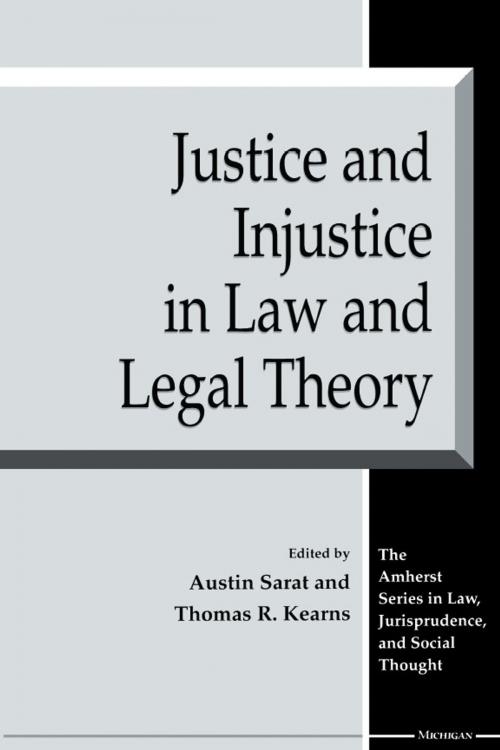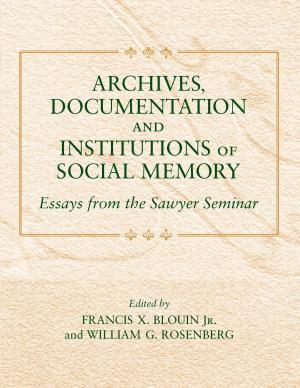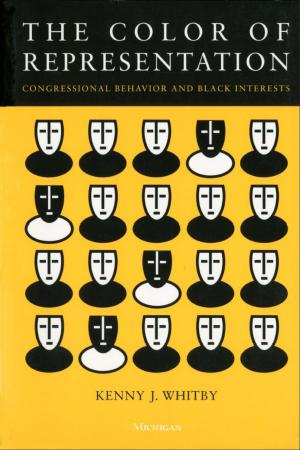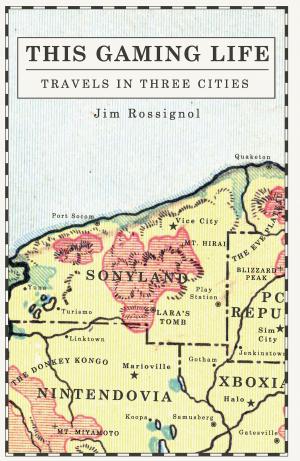Justice and Injustice in Law and Legal Theory
Nonfiction, Reference & Language, Law, Social & Cultural Studies, Social Science, Sociology, Religion & Spirituality, Philosophy| Author: | ISBN: | 9780472023684 | |
| Publisher: | University of Michigan Press | Publication: | November 11, 2009 |
| Imprint: | University of Michigan Press | Language: | English |
| Author: | |
| ISBN: | 9780472023684 |
| Publisher: | University of Michigan Press |
| Publication: | November 11, 2009 |
| Imprint: | University of Michigan Press |
| Language: | English |
Running through the history of jurisprudence and legal theory is a recurring concern about the connections between law and justice and about the ways law is implicated in injustice. In earlier times law and justice were viewed as virtually synonymous. Experience, however, has taught us that, in fact, injustice may be supported by law. Nonetheless, the belief remains that justice is the special concern of law.
Commentators from Plato to Derrida have called law to account in the name of justice, asked that law provide a language of justice, and demanded that it promote the attainment of justice. The justice that is usually spoken about in these commentaries is elusive, if not illusory, and disconnected from the embodied practice of law.
Furthermore, the very meaning of justice, especially as it relates to law, is in dispute. Justice may refer to distributional issues or it may involve primarily procedural questions, impartiality in judgment or punishment and recompense.
The essays collected in Justice and Injustice in Law and Legal Theory seek to remedy this uncertainty about the meaning of justice and its disembodied quality, by embedding inquiry about justice in an examination of law's daily practices, its institutional arrangements, and its engagement with particular issues at particular moments in time. The essays examine the relationship between law and justice and injustice in specific issues and practices and, in doing so, make the question of justice come alive as a concrete political question. They draw on the disciplines of history, law, anthropology, and political science.
Contributors to this volume include Nancy Coot, Joshua Coven, Robert Gorton, Frank Michelin, and Michael Tossing.
Austin Sarat is William Nelson Cromwell Professor of Jurisprudence and Political Science, Amherst College. Thomas R. Kearns is William H. Hastie Professor of Philosophy, Amherst College.
Running through the history of jurisprudence and legal theory is a recurring concern about the connections between law and justice and about the ways law is implicated in injustice. In earlier times law and justice were viewed as virtually synonymous. Experience, however, has taught us that, in fact, injustice may be supported by law. Nonetheless, the belief remains that justice is the special concern of law.
Commentators from Plato to Derrida have called law to account in the name of justice, asked that law provide a language of justice, and demanded that it promote the attainment of justice. The justice that is usually spoken about in these commentaries is elusive, if not illusory, and disconnected from the embodied practice of law.
Furthermore, the very meaning of justice, especially as it relates to law, is in dispute. Justice may refer to distributional issues or it may involve primarily procedural questions, impartiality in judgment or punishment and recompense.
The essays collected in Justice and Injustice in Law and Legal Theory seek to remedy this uncertainty about the meaning of justice and its disembodied quality, by embedding inquiry about justice in an examination of law's daily practices, its institutional arrangements, and its engagement with particular issues at particular moments in time. The essays examine the relationship between law and justice and injustice in specific issues and practices and, in doing so, make the question of justice come alive as a concrete political question. They draw on the disciplines of history, law, anthropology, and political science.
Contributors to this volume include Nancy Coot, Joshua Coven, Robert Gorton, Frank Michelin, and Michael Tossing.
Austin Sarat is William Nelson Cromwell Professor of Jurisprudence and Political Science, Amherst College. Thomas R. Kearns is William H. Hastie Professor of Philosophy, Amherst College.















